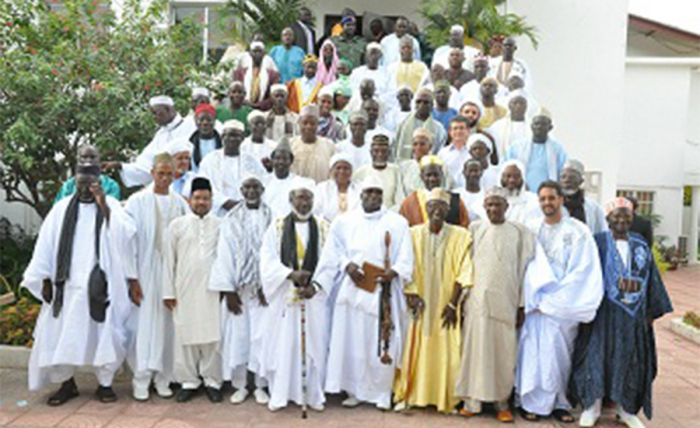
The government has also accepted that the Head of State shall not hold any substantive or honorary position in the Supreme Islamic Council, religious body, or religious order; and establishing an interfaith consultative body that will be mandated to carry out activities that will help strengthen religious tolerance and social cohesion.
Regarding attacks on religious freedom from 1994 to 2017, the government accepts the recommendation that former President Yahya Jammeh should be prosecuted for the unlawful arrests, detention, and torture of Imam Ba Kawsu Fofana, Imam Baba Leigh, Sheikh Muhideen Hydara, and Alhaiba Hydara, and the persecution of the Ahmadiya Jamaat, Shia Muslims, and the Ndiggal Sect in The Gambia.
The government also accepted the commission's recommendation to ensure the separation of the state and religion, and shall not be interpreted to mean that the State cannot facilitate the free exercise of religious beliefs of the citizens.
The government further accepts the members of the Ndiggal Sect still living in exile in Senegal to return to live in Kerr Mot Ali (Gambia) and their properties returned to them, and to enforce the judgment obtained by members of the Sect in the High Court of The Gambia.
The Government also accepts the recommendation to establish a Peace Committee for Kerr Mot Ali comprising all relevant stakeholders including the National Human Rights Commission whose mandate would be to negotiate the resettlement of the exiled residents and restoration of peace and religious co-existence in Kerr Mot Ali with all the relevant stakeholders and National Human Rights Commission.
"The government accepts the recommendation of the Commission and will work closely with the Ministry of Basic and Secondary Education and the National Human Rights Commission to review school curricula/modules on religious education provided in public schools to integrate religious tolerance and social cohesion. The government through the Ministry of Education will also engage and encourage private schools to equally integrate religious tolerance and social cohesion into their curricula," the White Paper stated.
The government also accepts to undertake a study of how the Supreme Islamic Council could be reformed and remodeled under a proper legal framework to be more useful in Gambian society considering its potential to carry out regulatory and other useful functions.
Among other recommendations accepted by the government are making it a rule that the Head of State shall not hold any substantive or honourary position in the Supreme Islamic Council, religious body, or religious order; and establish an interfaith consultative body that will be mandated to carry out activities that will help strengthen religious tolerance and social cohesion.





